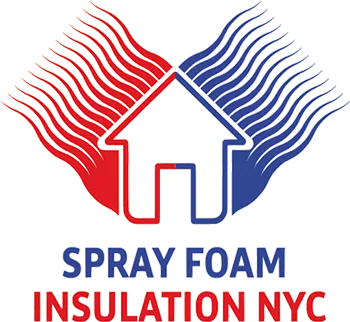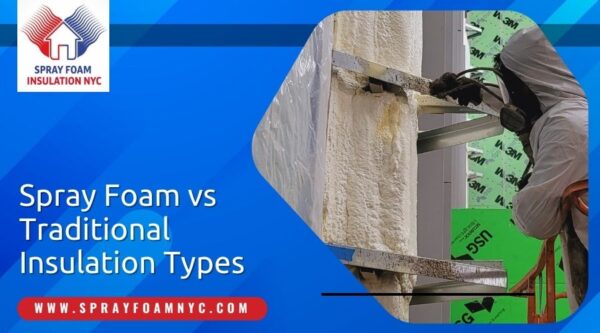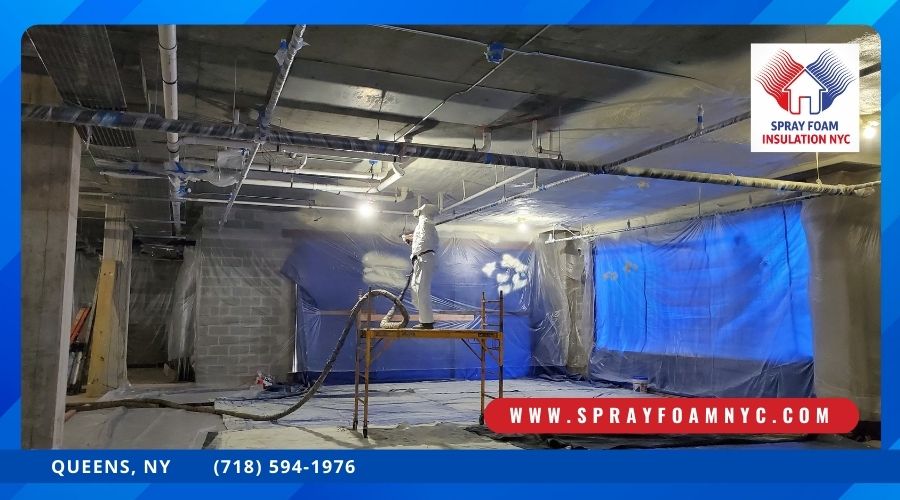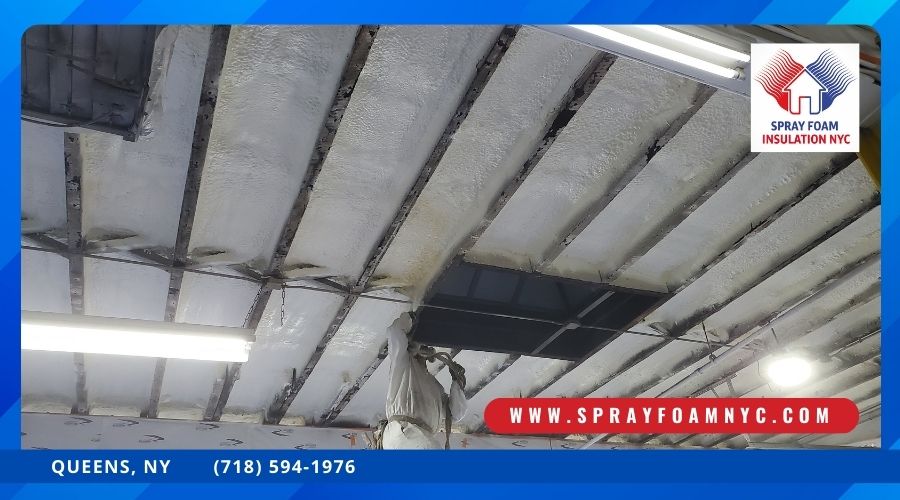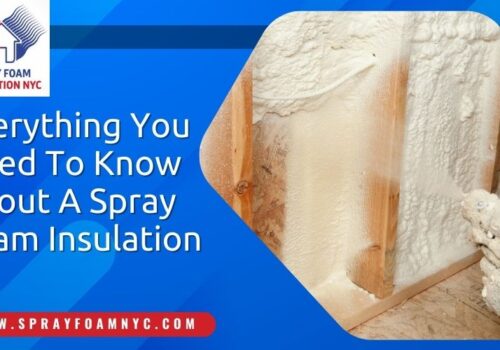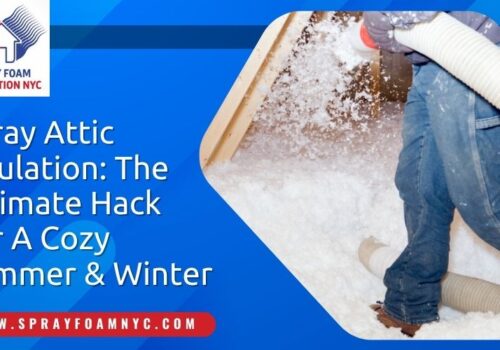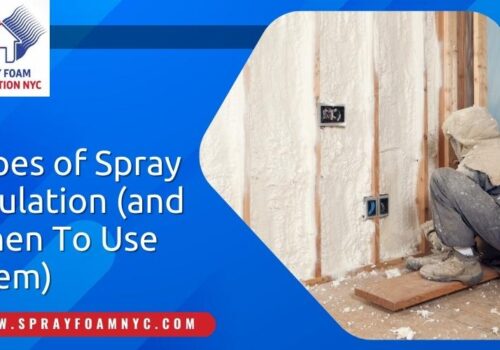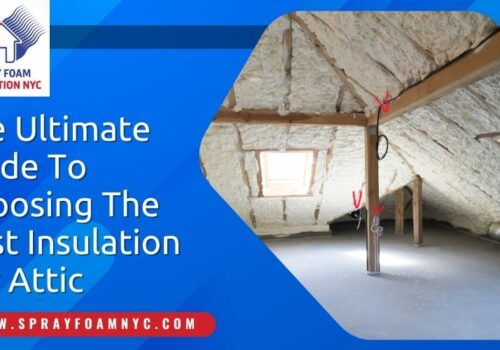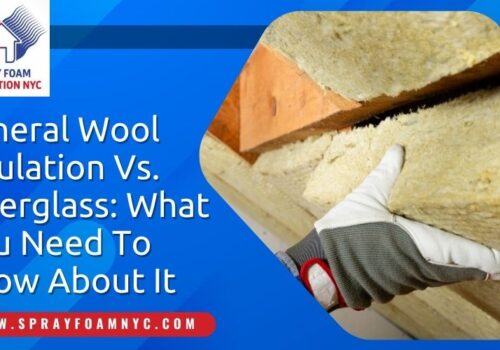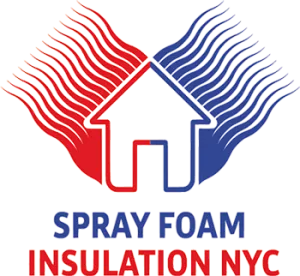The right insulation can make or break the comfort, energy efficiency, and value of a home. As homeowners, you've got choices, but which one wins the battle between the best spray foam insulation and traditional insulation methods? Let's dive in and compare spray foam vs traditional insulation types.
What is Spray Foam Insulation?
Spray foam insulation is a modern insulation solution made of polyurethane, isocyanate, or a blend of both. The application method involves spraying the foam which expands and fills spaces, nooks, and crannies. Types of spray foam insulation include:
Open Cell Spray Foam Insulation: Lightweight and Versatile
Open cell spray foam insulation offers a lightweight and flexible solution, making it particularly suitable for interior installations. Its pliable nature allows it to conform to irregular surfaces and intricate spaces, ensuring comprehensive coverage and effective thermal sealing.
Closed Cell Spray Foam Insulation: Densely Efficient and Water-Resistant
Closed cell spray foam insulation stands out with its dense structure, resulting in an impressive R-value and exceptional thermal performance. Beyond its insulating capabilities, it boasts water resistance, making it a robust choice for areas prone to moisture exposure. This combination of density and water resistance enhances both insulation efficiency and long-term durability.
Traditional Insulation: What You Need to Know
When it comes to traditional insulation, many homeowners might think of the pink rolls of fiberglass insulation that have adorned attics for decades. But there's more to it. Here's a rundown:
Fiberglass Insulation: Traditional and Affordable
When envisioning traditional insulation, the iconic pink rolls of fiberglass often come to mind. Composed of minuscule glass fibers, fiberglass insulation has been a staple in attics for decades. Its popularity stems from its cost-effectiveness, making it a budget-friendly option for homeowners seeking to enhance thermal insulation. While it efficiently traps air, slowing heat transfer, it's essential to note that fiberglass can pose respiratory irritation risks if not handled and installed properly.
Cellulose Insulation: Recycled Paper's Green Solution
Cellulose insulation takes a sustainable approach by utilizing recycled paper as its primary component. This eco-friendly choice appeals to environmentally-conscious homeowners. By repurposing paper waste, cellulose insulation effectively contributes to waste reduction and energy conservation. However, it's crucial to weigh the cellulose insulation pros and cons, as its susceptibility to moisture and potential settling over time can affect its long-term performance.
Celotex Insulation: Foam Board Excellence
For those prioritizing thermal efficiency, celotex insulation offers a compelling solution. This foam board insulation boasts exceptional thermal performance, making it a preferred option in spaces where maximizing insulation in limited thickness is vital. Celotex effectively minimizes heat transfer through its closed-cell structure, enhancing energy conservation. However, its higher initial cost compared to other materials should be considered alongside its thermal benefits.
Rockwool Insulation: Harnessing Volcanic Strength
Derived from volcanic rock, rockwool insulation stands out for its remarkable fire resistance. This inherent property makes it a compelling choice for enhancing home safety, especially in areas prone to fire hazards. While rockwool excels in fire protection and sound insulation, it's important to acknowledge the pros and cons of rockwool insulation. Its relatively higher density might necessitate cautious handling during installation, and its cost and potential health considerations should be factored into the decision-making process.
Benefits of Spray Foam Insulation
Choosing spray foam insulation is like opting for a tailored suit – it fits perfectly. Some standout benefits of spray foam insulation are:
- Energy efficient spray foam insulation: A barrier against heat loss, resulting in reduced utility bills.
- Air sealing benefits: It curbs unwanted air infiltration, maintaining indoor air quality.
- Durability: It doesn't sag over time.
Moisture control: Reduces potential for mold growth.
Advantages of Traditional Insulation
While spray foam insulation may be the new kid on the block, traditional insulation isn't without its merits. Why many homeowners still opt for them:
- Pros of fiberglass insulation- It's affordable and widely available.
- The cellulose insulation pros include its eco-friendliness.
- Rockwool insulation offers excellent soundproofing.
The Environmental Angle
Insulation is more than just home comfort; it's about being kind to our planet.
Spray foam insulation cons include the fact that its manufacturing process has higher emissions.
However, cellulose insulation, being made from recycled materials, has a positive environmental footprint.
Cost Comparison
Many homeowners often ponder, “how much does spray foam insulation cost?” The truth is, it might be pricier upfront, but the ROI is impressive. Among various insulation materials, spray foam insulation boasts the most impressive return on investment (ROI). Although initial installation costs for spray foam insulation may be higher for homeowners, the long-term benefits become evident through decreased energy expenses. Based on factors such as space dimensions, geographical setting, and household energy consumption, a return on investment could materialize within just 3 to 5 years, as stated by the Bob Vila website.
While spray foam insulation costs might be higher initially, in the long run, thanks to energy savings and reduced maintenance, homeowners often find it worthwhile.
Traditional insulation methods like fiberglass are more pocket-friendly initially.
Does spray foam insulation add value to your home? Based on all of the benefits stated here, the answer is: Absolutely!
Which is Right for Your Home?
In the debate of spray foam insulation vs traditional, the winner is subjective. It depends on your home’s requirements, budget, and long-term plans. Review the pros and cons of spray foam insulation and contrast them with the benefits and drawbacks of traditional methods. According to this article about Spray Foam Insulation, spray foam insulation outperforms traditional insulation by being a more effective insulator.
One notable benefit of spray foam insulation is its superior insulation capability compared to other types. This translates to potential savings on heating and cooling expenses for homeowners. Closed-cell foam insulation boasts impressive insulation prowess, with an R-value (a measure of thermal resistance) ranging from 6 to 7 per inch of thickness. In contrast, fiberglass batt insulation only offers an R-value of 3.1 to 3.4 per inch of thickness, making it less efficient. While open-cell foam insulation doesn't match the insulation power of closed-cell foam, with an R-value nearly half that of closed-cell foam, it provides a budget-friendly alternative due to its greater expansion.
Experience the Best in NYC: Upgrade Your Insulation
With spray foam vs traditional insulation, it really depends on your exact needs. Whether you're drawn to the energy-efficient allure of spray foam insulation or the proven dependability of fiberglass, cellulose, or rockwool insulation, it's vital to make an informed choice. Your home truly deserves the finest.
Are you prepared to enhance the comfort and efficiency of your residence with the best spray foam insulation in New York? Don't overlook the chance for potential energy savings and heightened home value. Get in touch with our specialists today to explore how we can revolutionize your insulation journey.
Frequently Asked Questions
Is spray foam insulation safe for indoor use?
Absolutely, when professionally installed and cured, spray foam insulation poses no harm to indoor environments or occupants.
How long does traditional insulation last compared to spray foam?
While spray foam insulation can endure a lifetime, traditional methods like fiberglass might require replacement or supplementation after several decades due to potential wear and tear.
Can I replace my old traditional insulation with spray foam?
Certainly, you can transition from old traditional insulation to spray foam. However, it's crucial to consult professionals to determine the most effective and efficient approach for your specific situation.
Which type of insulation offers better soundproofing?
While both insulation types have soundproofing capabilities, rockwool insulation is notably recognized for its superior acoustic properties, making it a preferred choice for noise reduction.
Are there any specific maintenance needs for either insulation type?
Spray foam insulation demands minimal maintenance once properly installed. In contrast, traditional insulation types like fiberglass may require periodic checks to identify potential gaps or sags that could compromise their thermal efficiency over time.
